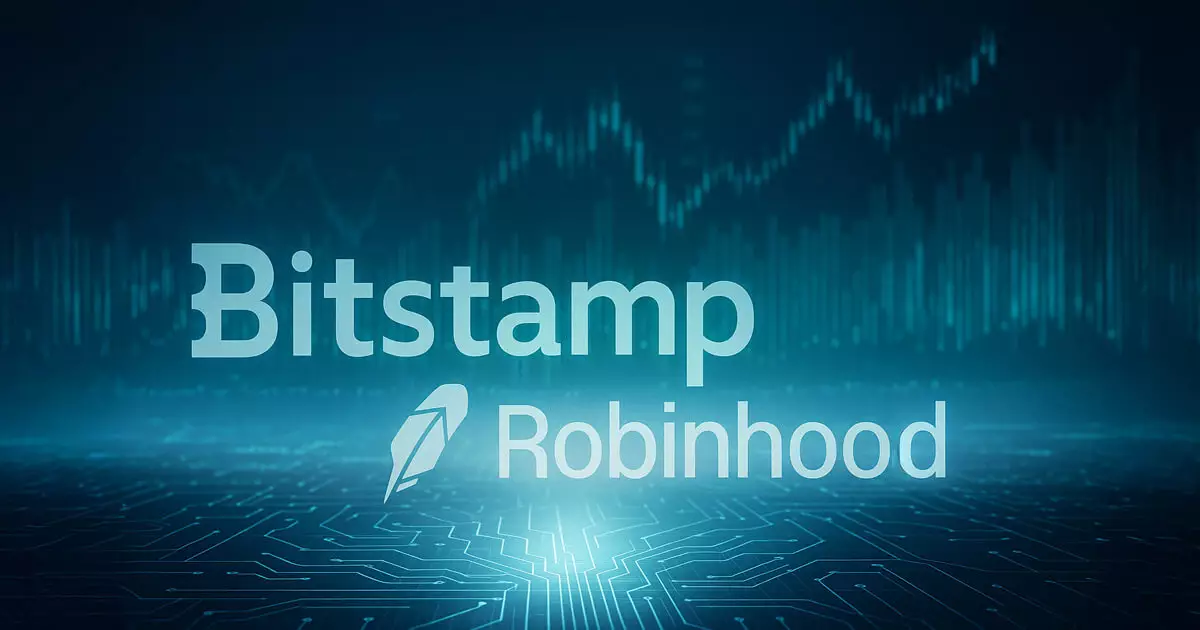In a pivotal decision announced on June 6, 2024, Robinhood’s acquisition of Bitstamp for $200 million has marked a significant shift in the landscape of cryptocurrency trading. After a protracted year of negotiations, this deal has enabled Robinhood to transcend its primary focus on the American market and embrace a more global presence. By purchasing one of the oldest crypto exchanges — known for its robust reputation among institutional investors — Robinhood has positioned itself as a formidable player on the international stage.
This strategy feels like a breath of fresh air in an ecosystem that has often felt stifled by regulatory complexities. Bitstamp’s extensive licensing in Europe, Asia, and beyond significantly accelerates Robinhood’s ability to operate worldwide, a transition that would have otherwise required many years of navigating red tape. This kind of bold move reflects a center-right liberal sentiment — believing in the power of the market while recognizing the regulatory frameworks necessary for sustainable growth.
A Turbulent Regulatory Environment
The cryptocurrency landscape is currently besieged by regulatory clouds, as authorities across the globe grapple with how to integrate these digital assets into existing frameworks. The U.S. Securities and Exchange Commission’s investigation into Robinhood Crypto was a significant hurdle that threatened to stall the deal. However, the resolution of that issue earlier this year revealed an opportunity for Robinhood, effectively clearing the path for this acquisition. It’s an impressive maneuver that suggests not just business acumen but also a keen understanding of the regulatory landscape.
In contrast, competitors like Binance have faced dire consequences due to regulatory dilemmas, including courtroom battles and outright bans in various jurisdictions. This starkly illuminates the importance of strategic compliance, a sentiment that resonates deeply within center-right liberal ideology, which champions both market freedom and responsible regulation.
The Changing Face of Cryptocurrency Trading
With this acquisition, Robinhood gains access to more than 50 active licenses across various regions, a feat that would take years to orchestrate from scratch. More than just a set of licenses, this expands Robinhood’s inventory to nearly 85 listed cryptocurrencies and innovative products like staking and lending facilities — options that will appeal to a broader customer base.
Previously, Robinhood’s offerings were limited, particularly stringent due to existing U.S. regulations, which confined its user base to just 15 tokens. This acquisition propels them into a new era, allowing for a diverse and expansive product menu that caters to the evolving needs of cryptocurrency traders. The deal signifies a shift from merely retail-focused solutions to an all-encompassing approach that incorporates institutional clients, thereby diversifying the revenue stream away from the retail order-flow model that has characterized Robinhood’s past.
Institutional Revenue: A Strategic Advantage
One of the most captivating aspects of this acquisition is Robinhood’s entry into the institutional market. Bitstamp’s existing customer base includes high-frequency market-makers and family offices, which provides Robinhood with a more robust, sustainable revenue model. Retail trading is notoriously volatile, especially in today’s fraught market conditions; thus, diversifying into institutional customers at this juncture is not just wise — it’s essential.
The strategic foresight here echoes center-right liberal values by promoting innovation while still operating within a robust regulatory framework. Encouraging institutional participation means more stability for the platform and can ultimately lead to a stronger market presence, positioning Robinhood to thrive amid ever-increasing competitive pressures.
A Call to Action: Integration and Innovation
As Robinhood embarks on the next chapter of its journey, the real challenge lies in effectively integrating Bitstamp into its existing structure. The need for seamless operations and a compelling customer experience cannot be overstated. Messaging to both existing Bitstamp users and Robinhood’s loyal base will be crucial to ensuring that this two-pronged customer base feels satisfied — rather than alienated — by the merger.
Robinhood’s strategic move represents a blend of innovative thinking and responsible market practices, a combination that can potentially redefine what it means to be a player in the cryptocurrency sphere. The choice to invest $200 million into Bitstamp symbolizes not just a financial transaction but an ideological commitment to growth through market engagement and regulatory compliance. In an industry often saturated with uncertainty, Robinhood is dare I say, poised to ride the wave of change into new and prosperous territories.

